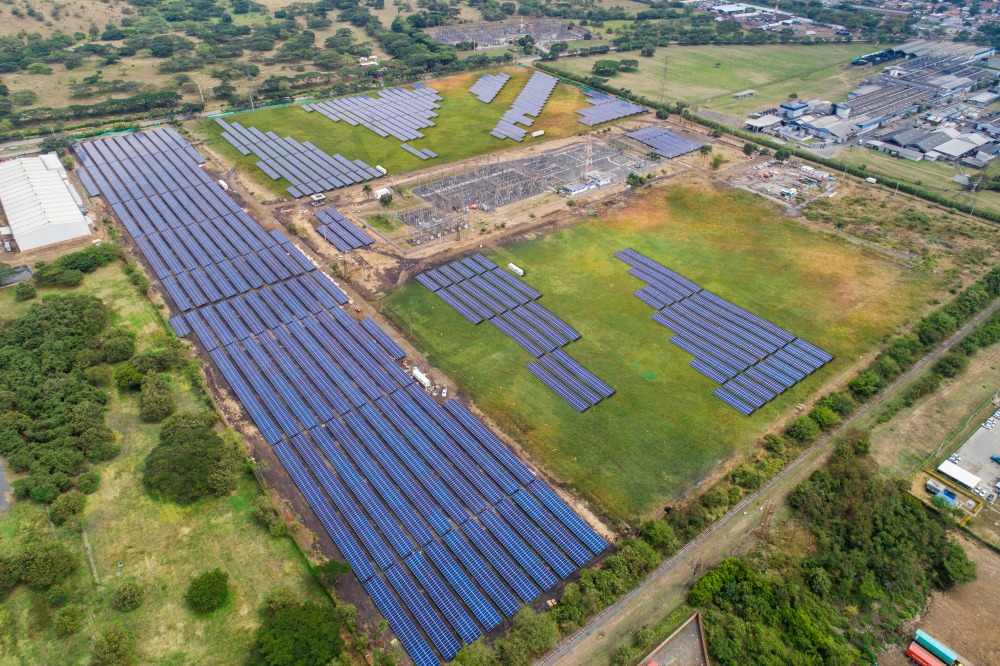Access to good financing conditions still represents one of most difficult tasks for developers of PV power projects, of any kind and size across all of the Latin American markets. The main reasons for this are, among others, high and volatile interest rates and currency instability, which must be taken into account together with the structural problems of all Latin American economies.
In order to help move their projects forward, several developers have recently resorted to using green bonds, a formula which looks likely to become more frequent in both the near and distant future, as traditional lenders are still reluctant to finance large-scale solar energy infrastructure projects across Latin America. Indeed, this is something being done more often than not by development banks.
One such player that uses green bonds is Colombian renewable energy company, Celsia, which has decided to issue bonds worth $145 million to finance its four existing PV projects, including 80 MW PV plant it is developing in Los Santos, in the department of Santander, which located in the central northern part of the country. According to the company, the bonds will be acquired by the International Finance Corporation, IFC, which belongs to the World Bank Group, and the National Development Bank, FDN, which is a Colombian development bank specializing in the financing of infrastructure projects.
The validity of the bonds is up to 12 years, the company said in its statement, while its placement will be made in one or several tranches, each for a minimum investment of around $17 million. The bond issuance is being made in accordance with the Green Bond Principles (GPB) of the International Capital Markets Association (ICMA), Celsia added.
In a separate development, London-based Faro Energy has announced that it has issued the first green bond for solar energy in Brazil. In its statement, the company, which also operates in Chile, Colombia, Ecuador and Peru, said the bond will be used to finance distributed energy PV projects throughout Brazil. This means projects not exceeding 5 MW in size under the current net metering scheme.
The Brazilian solar market is growing rapidly and these financing solutions are essential to allow the market to continue growing, the company said in its statement.
Popular content
Faro Energy has also highlighted how the bond has been verified by Bureau Veritas, an international agency specializing in conformity assessment and certification.
“We believe that innovative green finance mechanisms like Green Bonds will be transformational for the distributed solar sector in Brazil over the coming years,” said CEO, Sarah Chapman. The financial details of the bond issue, however, were not disclosed.
Green bonds have previously been used in Brazil for large-scale wind and solar projects. In May of last year, the National Economic and Social Development Bank (BNDES) raised US $1 billion with a green bond issue that it allocated to new and existing wind and solar projects in Brazil.
The issuance of green bonds for solar energy projects in Latin America was also recently announced in Peru, Uruguay, Argentina, and Chile.
This content is protected by copyright and may not be reused. If you want to cooperate with us and would like to reuse some of our content, please contact: editors@pv-magazine.com.



By submitting this form you agree to pv magazine using your data for the purposes of publishing your comment.
Your personal data will only be disclosed or otherwise transmitted to third parties for the purposes of spam filtering or if this is necessary for technical maintenance of the website. Any other transfer to third parties will not take place unless this is justified on the basis of applicable data protection regulations or if pv magazine is legally obliged to do so.
You may revoke this consent at any time with effect for the future, in which case your personal data will be deleted immediately. Otherwise, your data will be deleted if pv magazine has processed your request or the purpose of data storage is fulfilled.
Further information on data privacy can be found in our Data Protection Policy.